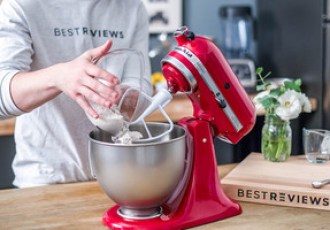We recommend these products based on an intensive research process that's designed to cut through the noise and find the top products in this space. Guided by experts, we spend hours looking into the factors that matter, to bring you these selections.

Not everyone has the time or desire to prepare coffee in the morning using an espresso machine or French press. Single-serving coffee pod machines like Keurig’s lineup of brewers deliver a fresh cup of coffee in less time than it takes to make the bed in the morning.
Just pop a pod into the machine, press a button, and enjoy a jolt of caffeine. There are myriad coffee pod options available to suit a variety of tastes.

When purchasing K-Cup coffee pods, there are two primary considerations to keep in mind: the coffee machine you have and how you like your coffee.
This is the number one aspect to keep in mind when shopping for K-Cup coffee pods: check that the pods are compatible with your machine! Some older Keurig brewers have issues with pod compatibility. Remember, too, that not all coffee pods work with Keurig machines. Nespresso pods, for instance, won’t fit in a Keurig brewer.
Do you like your coffee strong? mild? black? Are you a fan of flavored caffeinated beverages? Your preferences will dictate your pod purchases. While coffee connoisseurs may turn their noses up at K-Cup coffee pods, there’s no denying that these brewers win out in terms of convenience, and plenty of coffee drinkers have found coffee pods that they enjoy and continue to buy.
What differentiates one K-Cup coffee pod from another? Here are a few features to note:
Types: A slew of brand-name coffee producers have jumped on the K-Cup bandwagon, so it’s possible to enjoy your favorite coffee from Starbucks, McDonald’s, or Dunkin’ Donuts. Other big-name coffee brands like Van Houtte and Folgers also sell Keurig-compatible coffee pods.
Recyclable: One of the biggest concerns of frequent K-Cup coffee drinkers is the amount of waste generated by single-serving pods. Over time, Keurig and other coffee producers have developed recyclable pods. Simply dump the coffee grounds in your municipal or home compost bin, remove the foil lid, rinse out, and toss the pod into the recycling bin. You’ll see the recycling symbol on the boxes of pods that are recyclable.
Decaffeinated: If you’re unable to tolerate caffeine or simply prefer to opt out of a caffeinated beverage when it’s close to bedtime, choose from a variety of decaffeinated K-Cup pods.
Flavored: Mix things up by choosing coffee pods with infused or added flavors like vanilla, hazelnut, or Irish cream. Some flavored pods include added sweeteners or dried milk products to create a latte- or cappuccino-type beverage. Check the nutrition information to verify whether a product has added sugar or milk.
Price: You can buy K-Cup coffee pods in bulk to save money. They’re typically sold in boxes of 12, 24, 30, or 48. Individual K-Cup pods usually cost between $0.20 and $0.80. Specialty coffees or brand names like Starbucks are the most expensive.


Q. Is dark-roast coffee stronger than lightly roasted coffee?
A. Dark-roast coffee actually contains less caffeine than light-roast coffee, but the flavor is very different. Dark-roast coffee tends to have a sharp, less complex taste, while light-roast coffee often contains sweet notes.
Q. Is decaf coffee completely caffeine-free?
A. No, Decaf coffee contains a bit of caffeine, but it’s minimal compared to a full-caf cup, but it’s a solid alternative for those who are affected by coffee’s caffeine content.
Get emails you’ll love.
Learn about the products you’re wondering if you should buy and get advice on using your latest purchases.
